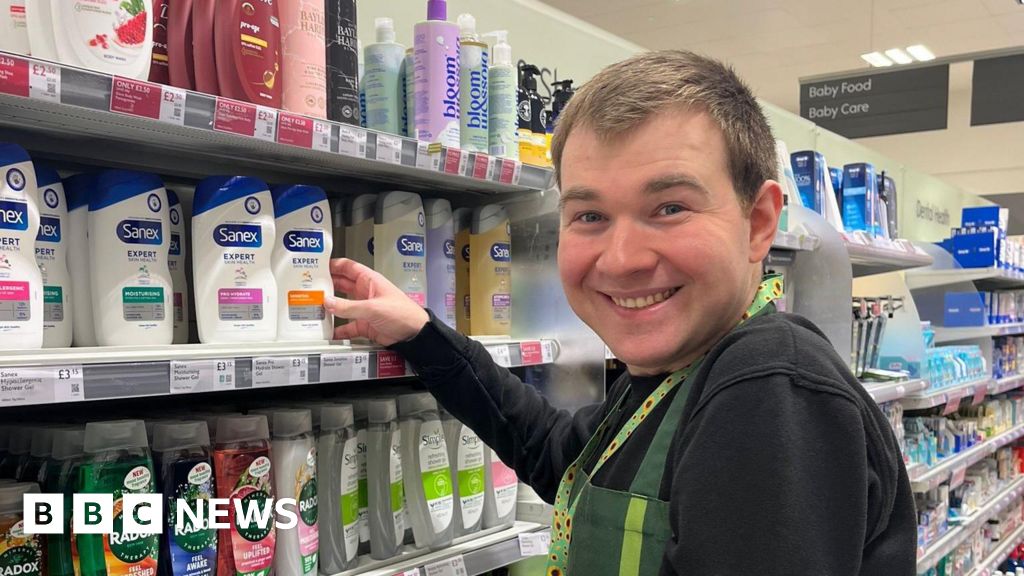The mother of an autistic man who was told he had to stop stacking shelves at a Waitrose store where he had worked as a volunteer for years has said he “deserved better”.
Frances Boyd said her son Tom, 28, began work experience at the Cheadle Hulme store in Greater Manchester in 2021, and continued to work unpaid, accompanied by a support worker, as it gave him “a sense of purpose and belonging”.
But she said that when she asked in July if he could be offered “just a few paid hours”, Waitrose head office told him he had to stop and could not return to the store.
A Waitrose spokesman said the supermarket “worked hard to be an inclusive employer” and was investigating the matter “as a priority”.
Ms Boyd said Tom, who has limited communication skills, started at the store as part of his skills development for the workplace on his further education course, and continued to volunteer on two mornings a week.
She said he was “so proud of his work”, which involved putting stock out and tidying the shelves, and was praised for his work ethic by managers.
“If I went in and saw him, he was smiling, and it gave him independence, a sense of purpose and belonging.
“He gave over 600 hours of his time purely because he wanted to belong, contribute, and make a difference. We feel deeply let down.”
A Waitrose & Partners spokesman said it works with a number of charities to provide work experience, and is “well experienced in making reasonable adjustments to help people succeed at work”.
“We are sorry to hear of Tom’s story, and whilst we cannot comment on individual cases, we are investigating as a priority.”
She said his placement was stopped when Waitrose head office was asked about the possibility of paid work and said she was told it was because he “couldn’t perform the whole role”.
She said: “He deserved better. He deserved kindness, respect, and the chance for all his hard work to mean something.
“No one should be made to feel their contribution doesn’t matter especially someone who’s given so much of themselves for so long.”
Volunteers do not have the same rights as an employee or worker, according to the government, though there are expectations for those undertaking vocational training.
The guidance says those who volunteer will usually be given a volunteer agreement that sets out the level of supervision and support they can receive.
This includes advice on training, and whether you’re covered by the organisation’s insurance, as well as expenses and health and safety issues.
The agreements are not compulsory and do not form a contract.
Ms Boyd said she wanted to see legal protections like those afforded by the Equality Act for people with disabilities who work as volunteers to ensure “they have rights and opportunities”.
She said: “They can be terminated at any time and that’s not really the way we should be moving forward in society today.”

